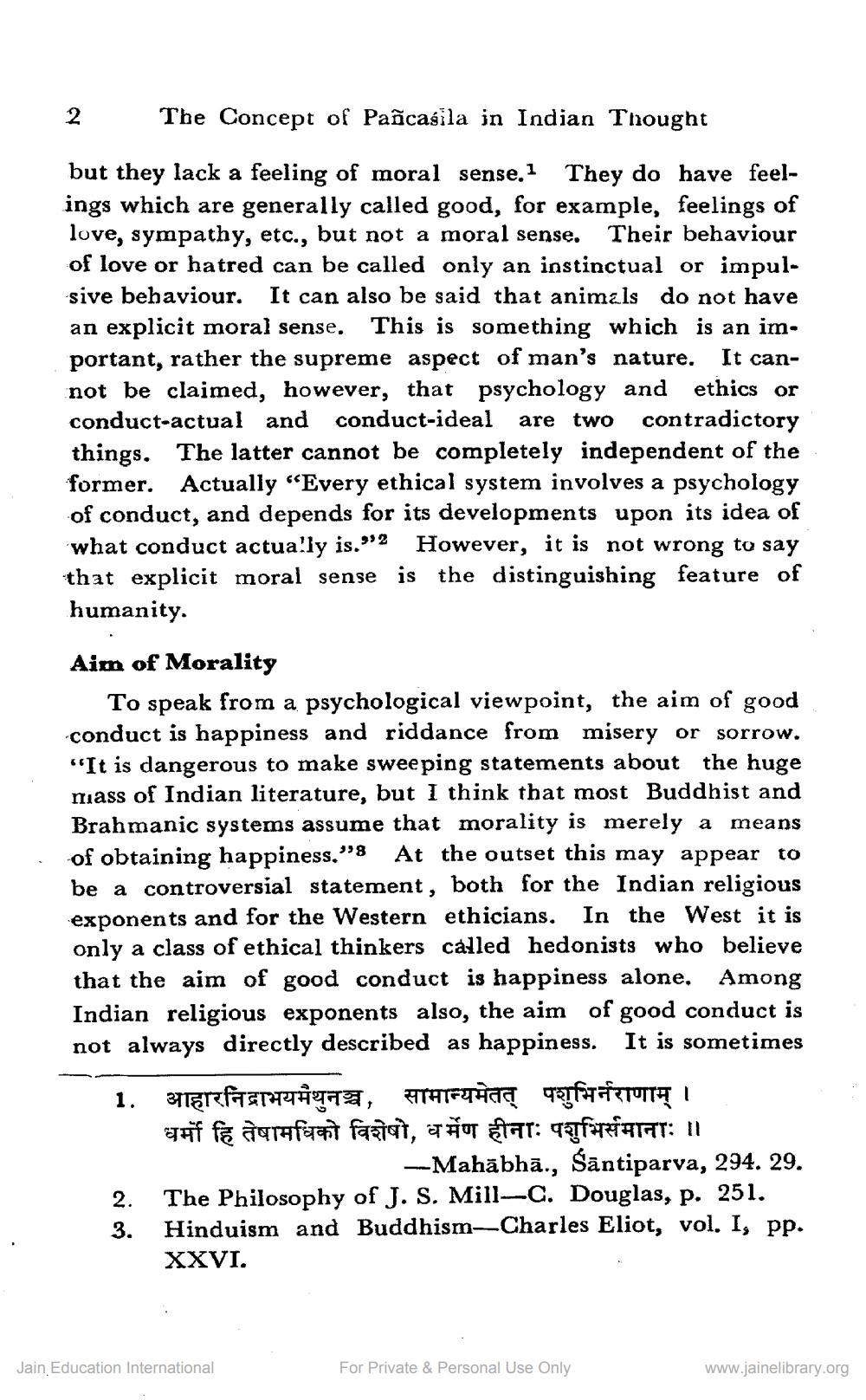________________
The Concept of Pancasila in Indian Thought
ethics or
but they lack a feeling of moral sense.1 They do have feelings which are generally called good, for example, feelings of love, sympathy, etc., but not a moral sense. Their behaviour of love or hatred can be called only an instinctual or impulsive behaviour. It can also be said that animals do not have an explicit moral sense. This is something which is an important, rather the supreme aspect of man's nature. It cannot be claimed, however, that psychology and conduct-actual and conduct-ideal are two contradictory things. The latter cannot be completely independent of the former. Actually "Every ethical system involves a psychology of conduct, and depends for its developments upon its idea of what conduct actually is."2 However, it is not wrong to say that explicit moral sense is the distinguishing feature of humanity.
2
Aim of Morality
To speak from a psychological viewpoint, the aim of good conduct is happiness and riddance from misery or sorrow. "It is dangerous to make sweeping statements about the huge mass of Indian literature, but I think that most Buddhist and Brahmanic systems assume that morality is merely a means of obtaining happiness." At the outset this may appear to be a controversial statement, both for the Indian religious exponents and for the Western ethicians. In the West it is only a class of ethical thinkers called hedonists who believe that the aim of good conduct is happiness alone. Among Indian religious exponents also, the aim of good conduct is not always directly described as happiness. It is sometimes
1. आहारनिद्राभयमैथुनञ्च, सामान्यमेतत् पशुभिर्नराणाम् ।
auf fæ àqrafamì fað¶ì, año Har: qyfaðmat: 11 —Mahābhā., Śāntiparva, 294. 29.
The Philosophy of J. S. Mill-C. Douglas, p. 251. Hinduism and Buddhism-Charles Eliot, vol. I, pp. XXVI.
2.
3.
Jain Education International
For Private & Personal Use Only
www.jainelibrary.org




